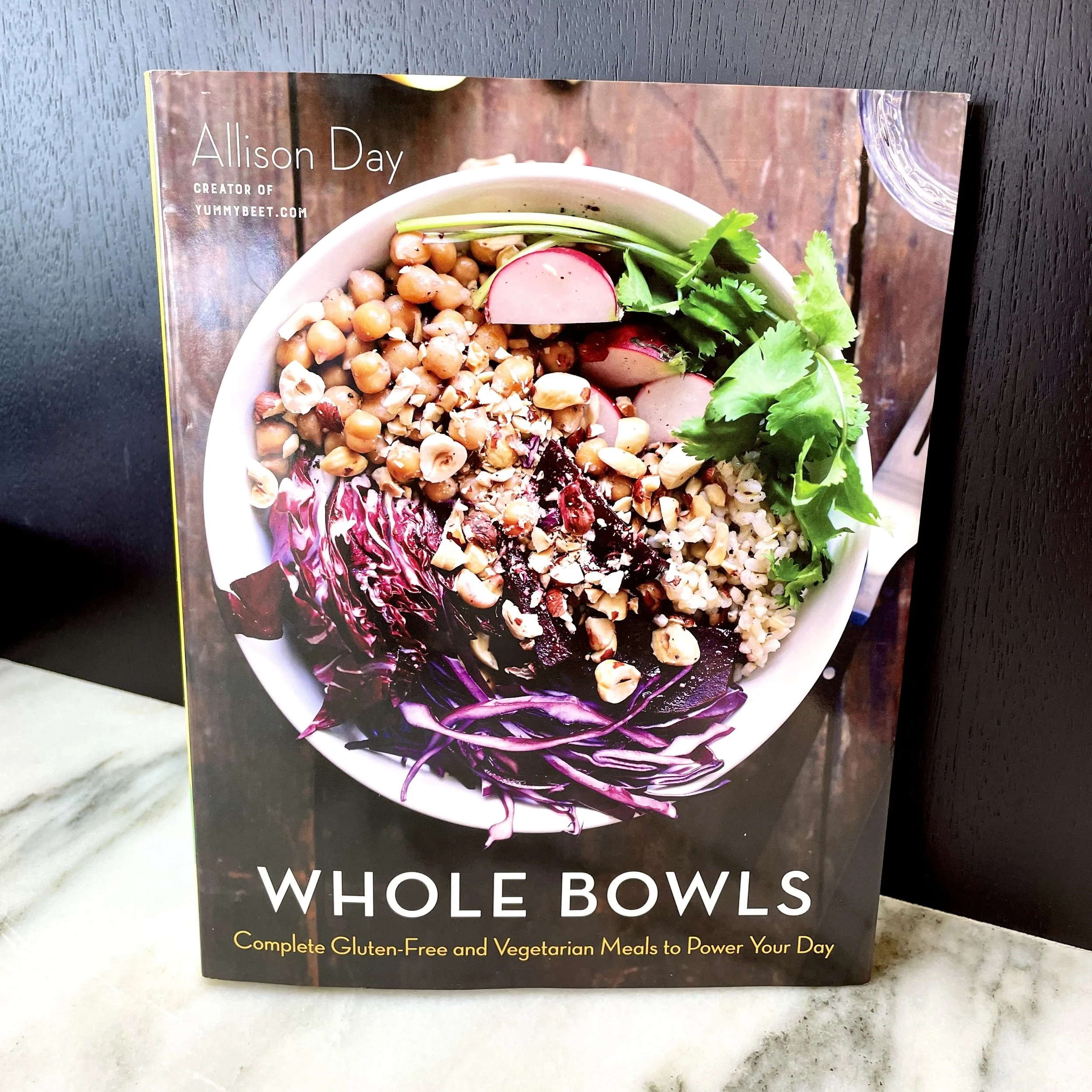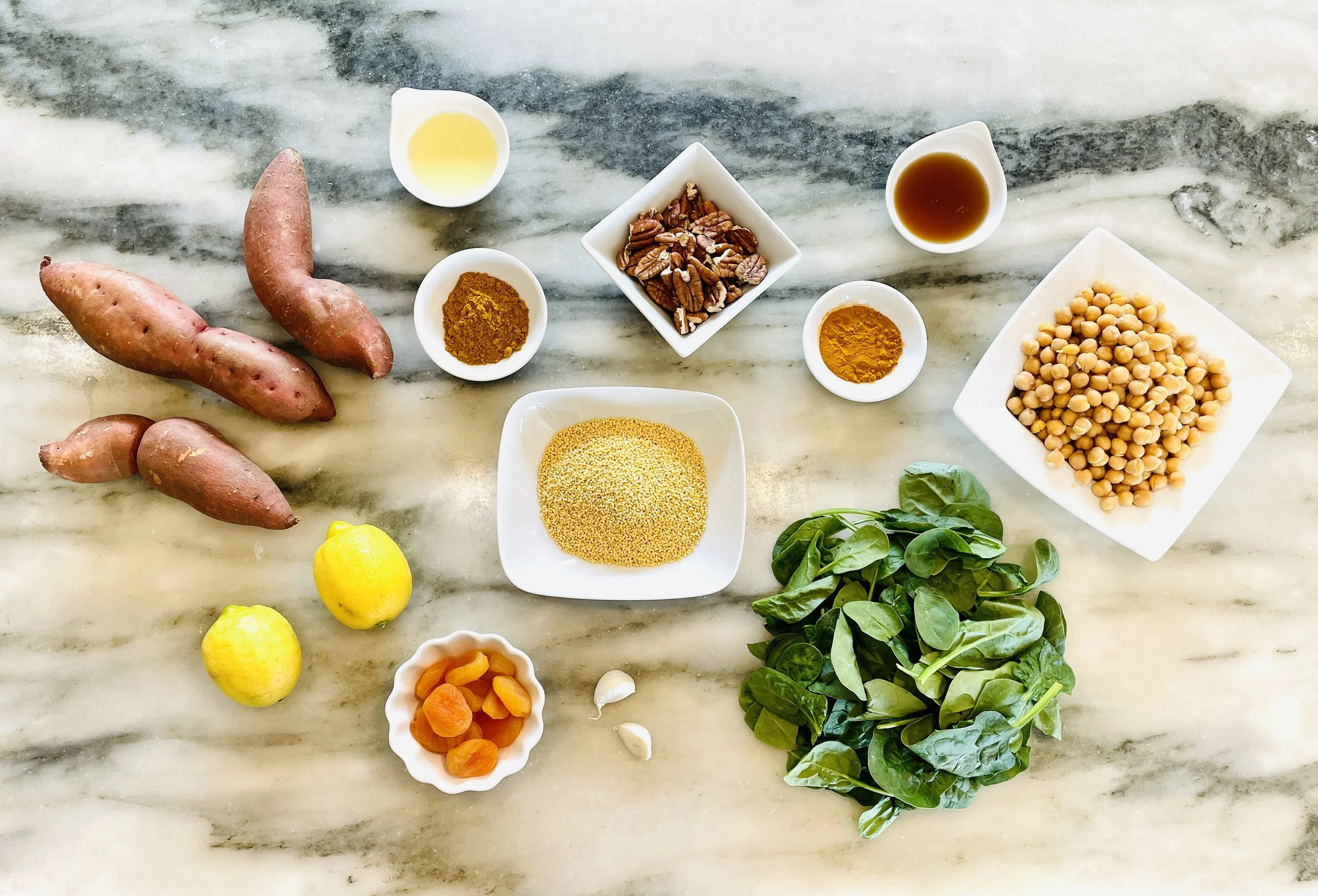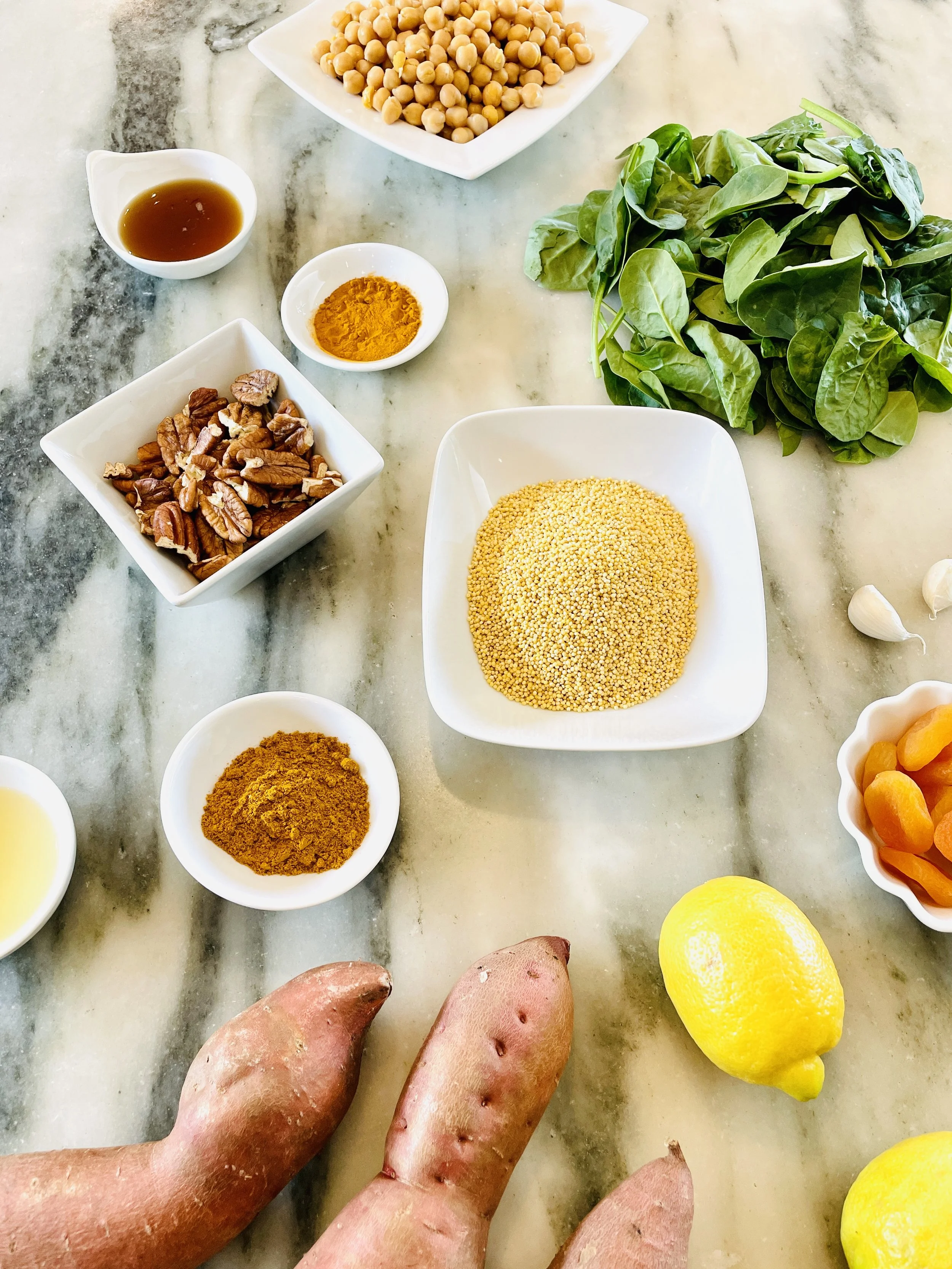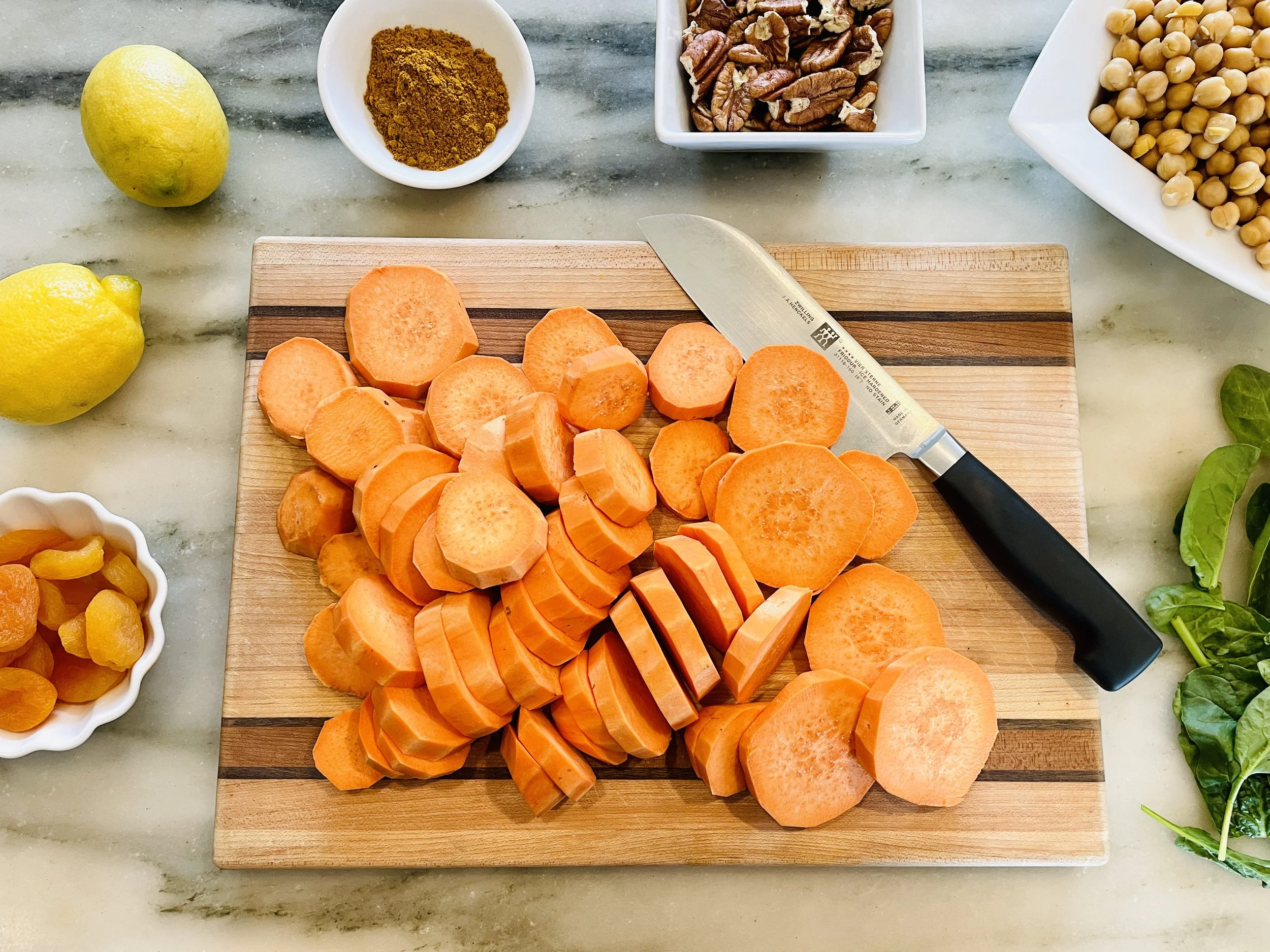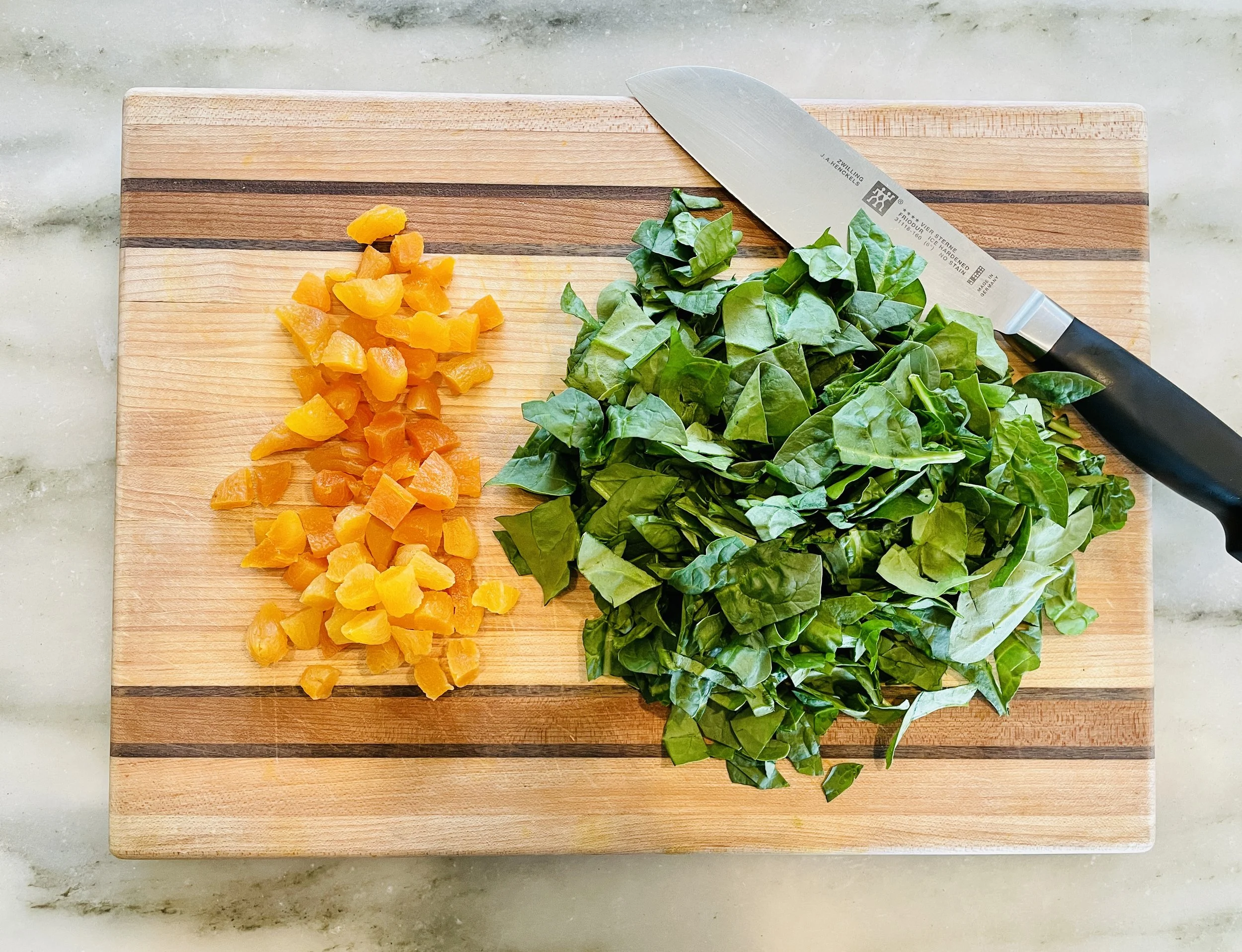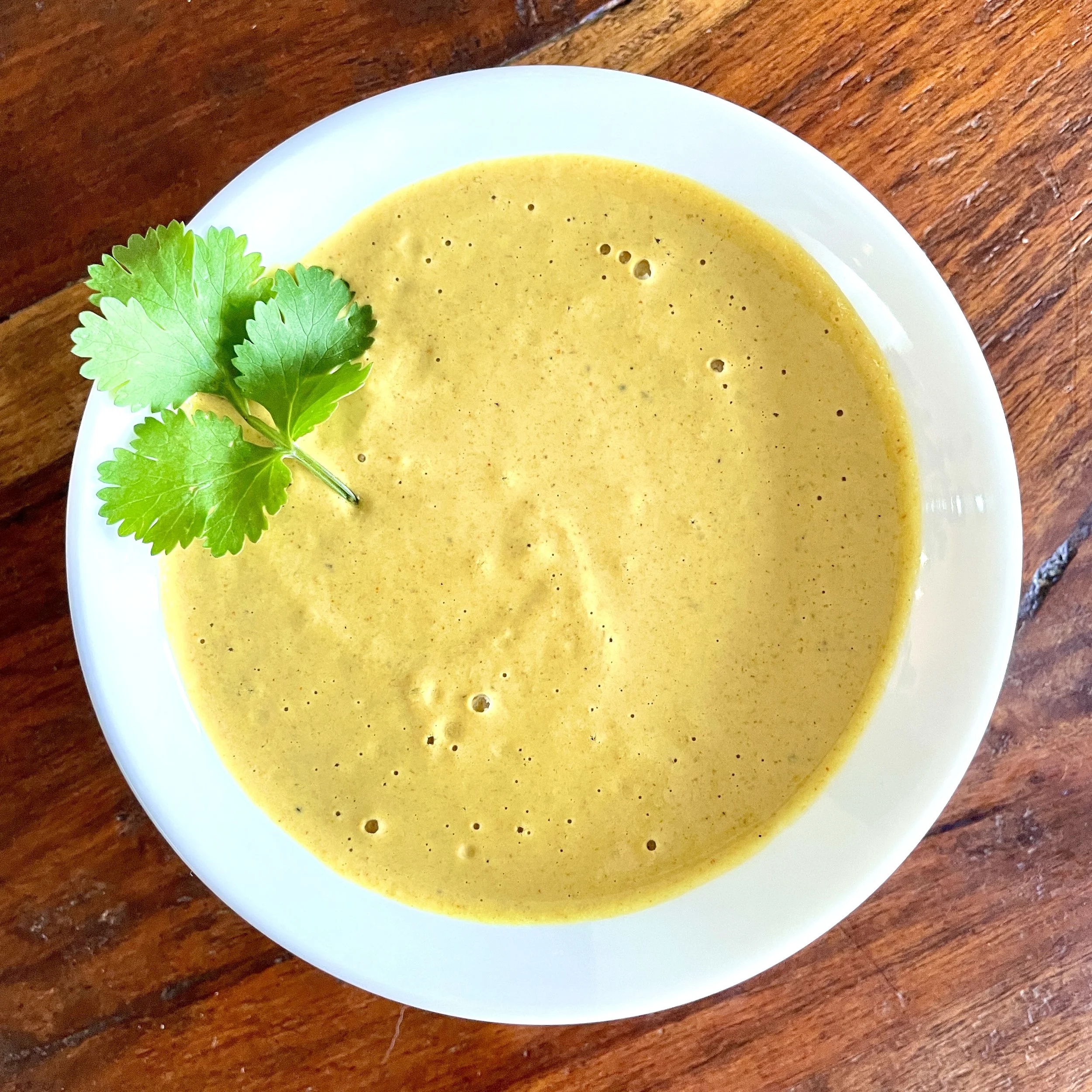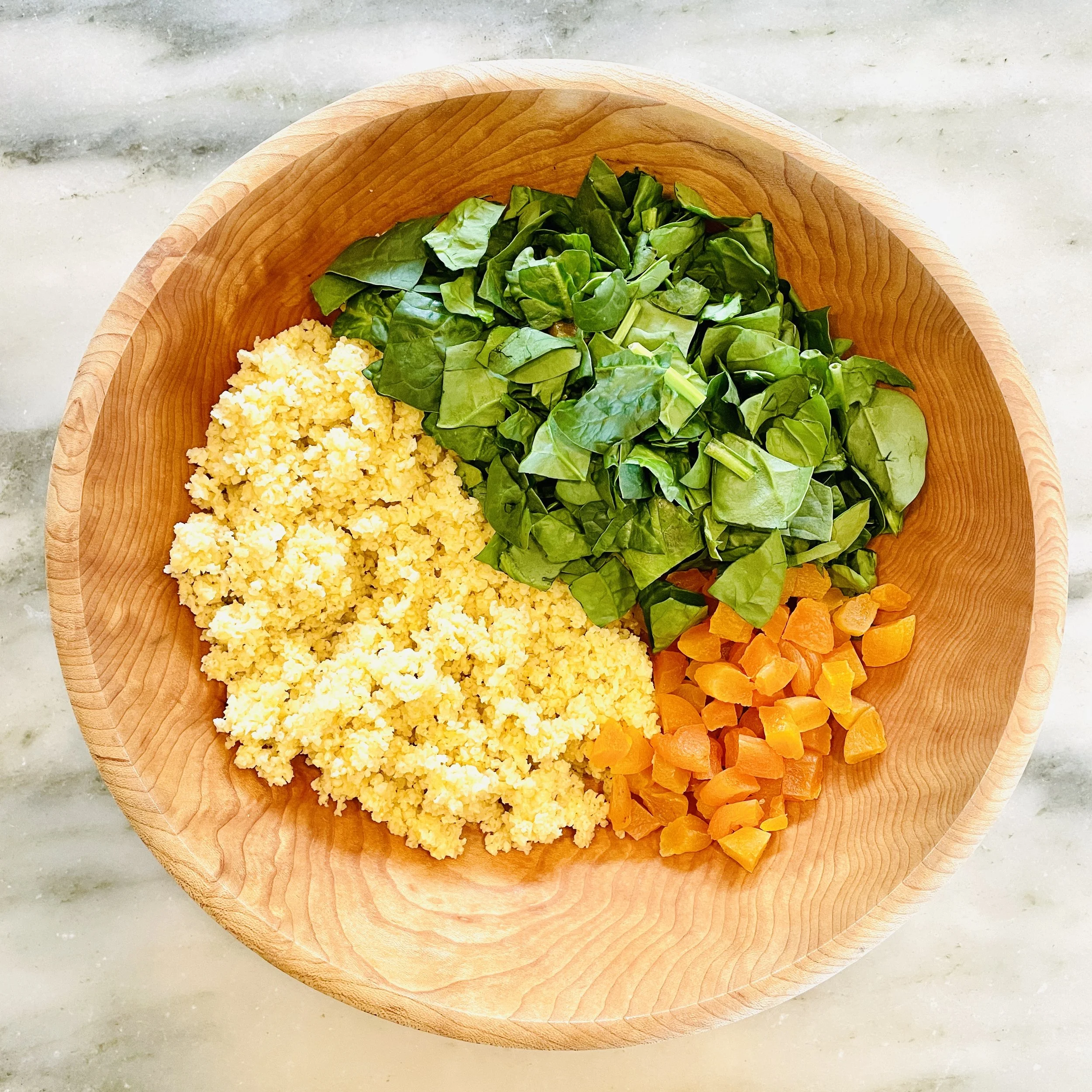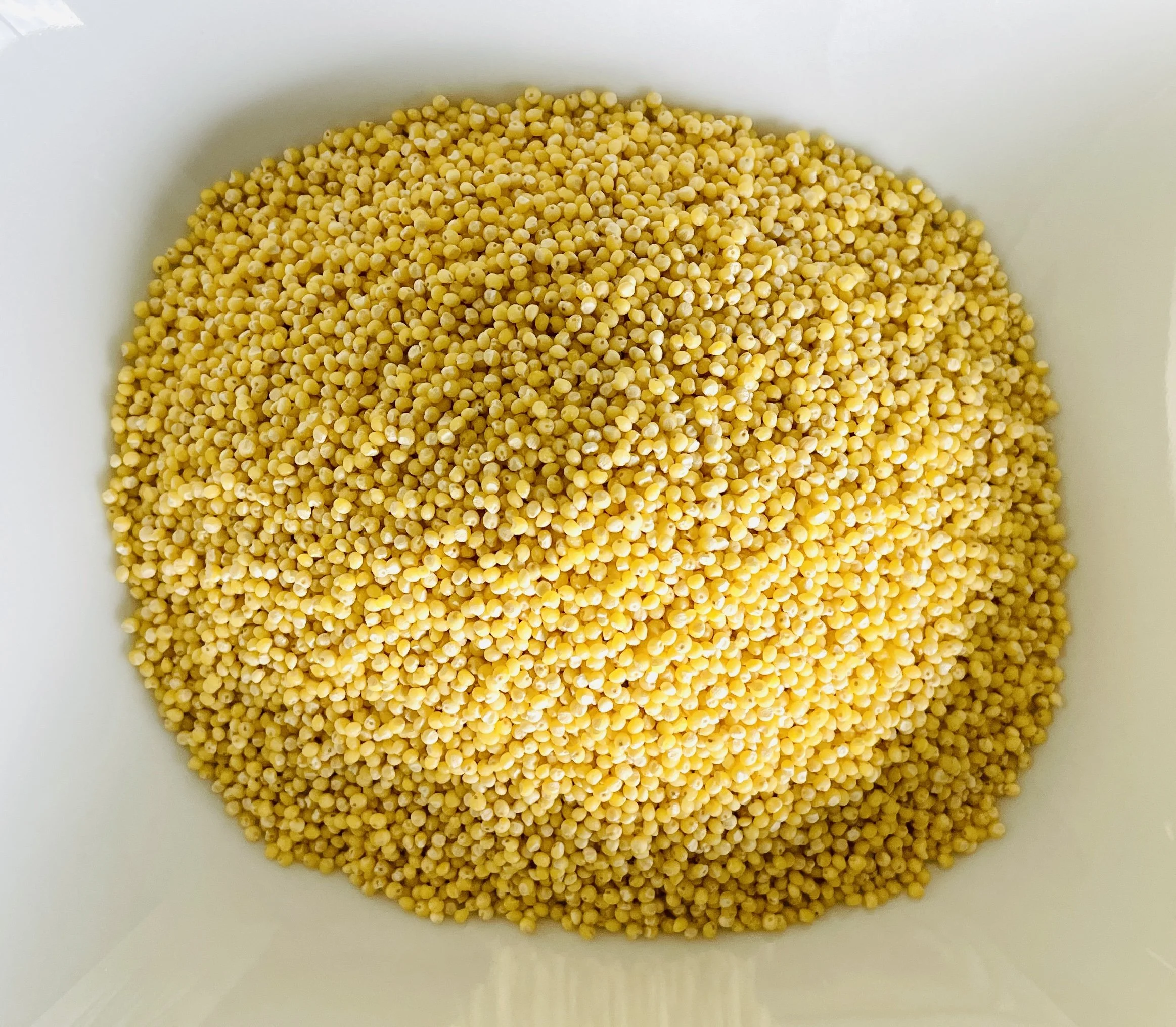Millet Bowls with Golden Curry Pecan Sauce
Recipe adapted from Whole Bowls by Allison Day
This dish is an adaptation of Allison’s Days Spice Route Bowls with Sweet Potato Coins, Millet Couscous, and Golden Curry Pecan Sauce from her terrific cookbook, WHOLE BOWLS. Her book is packed with beautiful photographs, delicious and healthy recipes, and super interesting food combinations. If you are not familiar with Allison Day, I encourage her to check out her wonderful cookbook and to view her inventive recipes at The Yummy Beet www.yummybeet.com.
This recipe is a fan favorite at our house, and over the years we have altered it slightly it to increase the nutritional density and plant diversity. It is a terrific combination of flavors and textures, and it includes a wide variety of health-promoting whole plant foods, including spinach, pecans, sweet potatoes, millet, garbanzos, and turmeric. If millet isn’t yet in your whole grain rotation, this is a great recipe to give it a try.
Special Equipment Needed:
High-Speed Blender
Rice Cooker (optional)
Bowl Ingredients:
1 cup dry millet
2 cups water
3 medium sweet potatoes (use any variety you like, or a combination of varieties)
2 tablespoons avocado oil, divided
2 15-oz cans garbanzo beans, drained and rinsed
1/2 cup dried apricots (or more to taste)
6 cups fresh spinach or arugula, rinsed
Salt
Ingredients for Golden Curry Pecan Sauce
1 1/2 cups very hot water. (The water must be very hot to “cook” the curry powder.)
2 cloves of garlic, peeled
1 cup raw pecan halves
2 tablespoons curry powder (higher quality will yield a better result)
The juice of 2 large lemons
2 tablespoons maple syrup
1 teaspoon turmeric
1/8 teaspoon black pepper (or more to taste)
1 teaspoon salt (or more to taste)
2 teaspoons Sriracha (optional)
This recipe makes enough for a party-sized salad or gives you leftovers for lunches for several days. If you’d like a smaller salad, feel free to halve the ingredients.
Instructions to Prep the Bowl Ingredients:
Preheat oven to 450 degrees.
Place the cup of millet and the two cups of water into a rice cooker. Cook on the white rice setting. If you don’t have a rice cooker available, add the millet and water to a saucepan, bring to a boil, and then reduce to a simmer. Cover, and cook for 18-20 minutes or until liquid is absorbed and millet is fluffy.
Peel the sweet potatoes and slice them into rounds approximately 1/2” thick.
Cover a large baking sheet with parchment paper.
Place the sweet potatoes on the parchment-line baking sheet, top with 1 tablespoon of the oil, toss to coat evenly.
Spread the rounds in a single layer on the baking sheet. Sprinkle with salt.
Bake for approximately 35 minutes, or until cooked through and starting to crisp, flipping once during cooking. They burn easily, so watch them carefully.
Line a second baking sheet with parchment.
Place the garbanzos on this sheet, toss them with the remaining tablespoon of oil. Spread in an even layer, sprinkle with salt, and cook for approximately 35 minutes or until crispy, shaking the pan once during cooking.
Roughly chop the spinach.
Cut each dried apricot into six small pieces.
Instructions for Golden Curry Pecan Sauce:
Place all ingredients into the container of a high speed blender.
Blend on medium high until smooth and creamy.
This recipe makes approximately 2 cups of sauce. If you prefer a smaller amount, the recipe can be easily halved.
Toss the cooked millet, spinach, and apricots together in a large salad bowl.
To serve, place several rounds of sweet potatoes over the millet mixture, sprinkle with crispy chickpeas, and dress with sauce, as desired.
Marvelous Millet
Here are some reasons to consider including millet in your whole grain rotation:
Millet is a seed, much like quinoa. Given this, it is high in protein and contains an excellent amino acid balance, making it an ideal protein source for human consumption.
Millet is packed with vitamins and minerals, including calcium, iron, potassium, niacin, and zinc.
Millet is gluten free, making it a nice whole grain alternative for those who are gluten-sensitive.
Millet is high in antioxidants, especially phenolic acids and tannins, which have been shown to lower cholesterol, to improve heart health, to minimize free radical damage, and to reduce systemic inflammation.
Millet is high in fiber, which helps to improve digestive health, increases satiety, and reduces obesity risk. Millet is also an excellent source of prebiotic fiber, a preferred food for our helpful gut microbes.
Millet has a low glycemic index, making it a good choice for individuals who are working on managing their blood sugar levels.
In animal studies, millet has been shown to alleviate oxidative stress in the brain (specifically in the hippocampus), to prevent cell death, and to down-regulate the expression of Alzheimer’s genes (Li et al., 2020). Although studies have not yet been conducted on humans, these results show promise for the potential benefit of millet consumption for human brain health.
(Hassan et al, 2020; Li et al, 2020; Samtida et al, 2023)
Hands on Time: ~ 30 minutes
Total Cooking Cook Time: ~ 40 minutes
Yield: 6 servings
Average Serving: 1/2 cup cooked millet, 1/2 sweet potato, 1 cup spinach, 1 tablespoon chopped apricot pieces, 1/2 cup garbanzo beans, and 4 tablespoons sauce.
Nutrition Information Per Average Serving:
Calories: 425 Protein: 12.7g Fat: 15.4g Carbs: 50g Fiber: 12.6g Iron: 3.6mg
Calcium: 115mg Vitamin A: 878IU Vitamin C: 33mg Folate: 132IU Potassium: 850mg Polyunsaturated Fat: 5g Saturated Fat: 1.4g Trans Fat: 0 g Cholesterol: 0 mg
Nutrition information is an estimate. Data will vary according to the specific products and amounts used.
Wishing you excellent health and happy eating!
🌱💕
References:
Hassan, Z. M., Sebola, N. A., & Mabelebele, M. (2021). The nutritional use of millet grain for food and feed: A Review. Agriculture & Food Security, 10(1). www.doi.org/10.1186/s40066-020-00282-6
Li, S., Xian, F., Guan, X., Huang, K., You, W., Liu, & Liu, D. (2020).Neural Protective Effects of Millet and Millet Polyphenols on High-Fat Diet-Induced Oxidative Stress in the Brain. Plant Foods for Human Nutrition, 75(208-214). www.pubmed.ncbi.nlm.nih.gov/32078112/
Samtiya, M., Aluko, R. E., Dhaka, N., Dhewa, T., & Puniya, A. K. (2023). Nutritional and health-promoting attributes of Millet: Current and future perspectives. Nutrition Reviews, 81(6), 684–704. www.doi.org/10.1093/nutrit/nuac081

